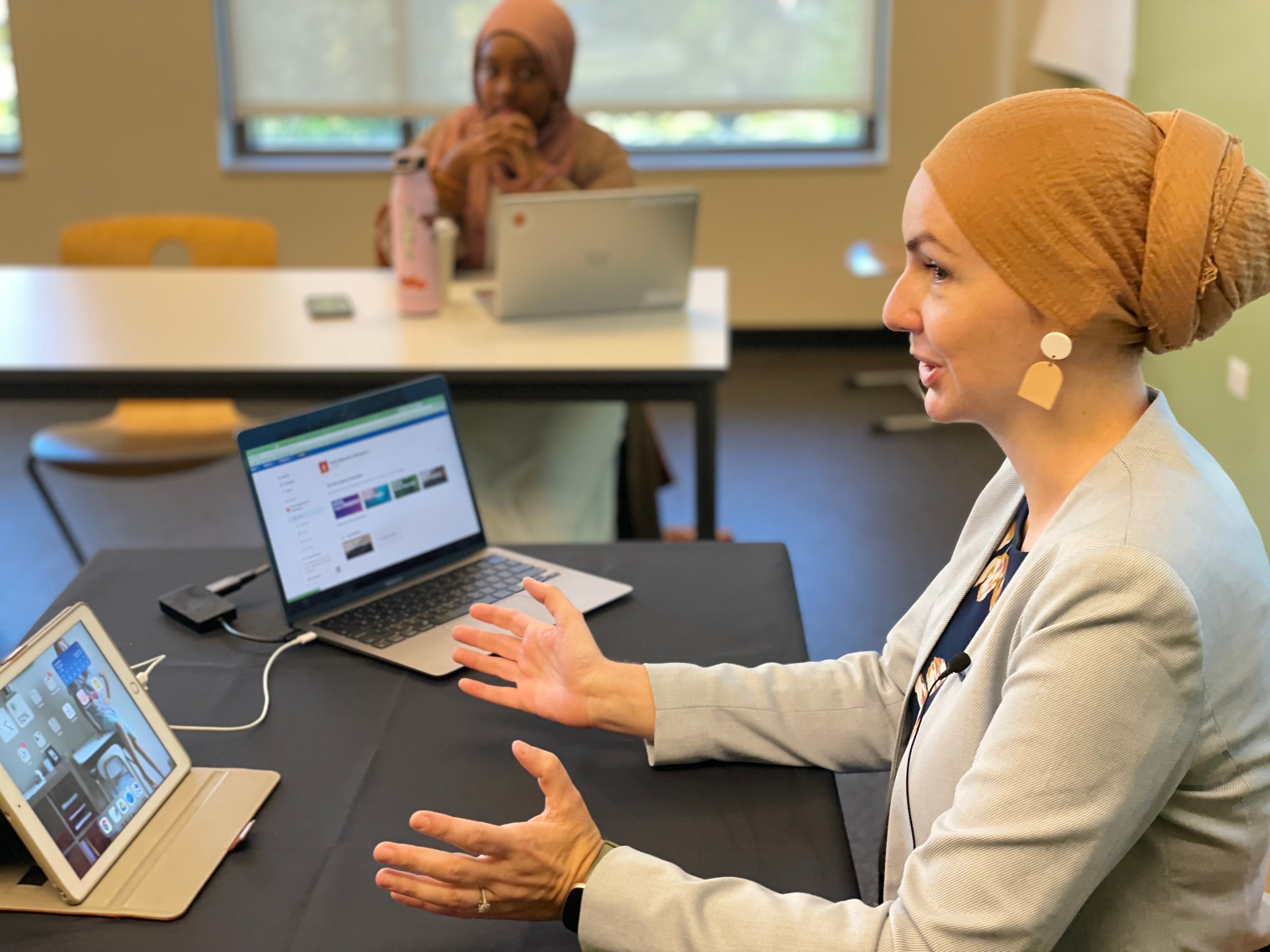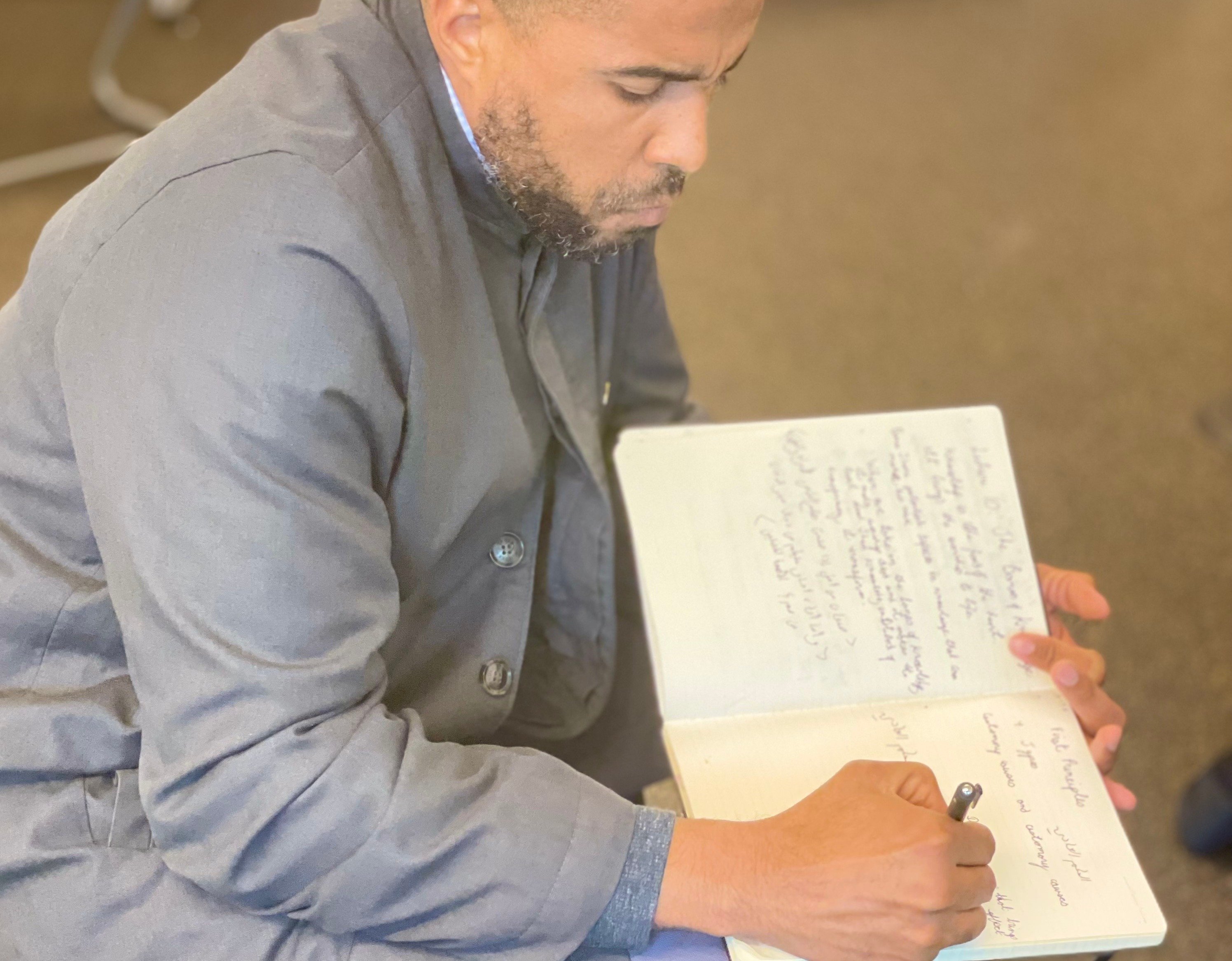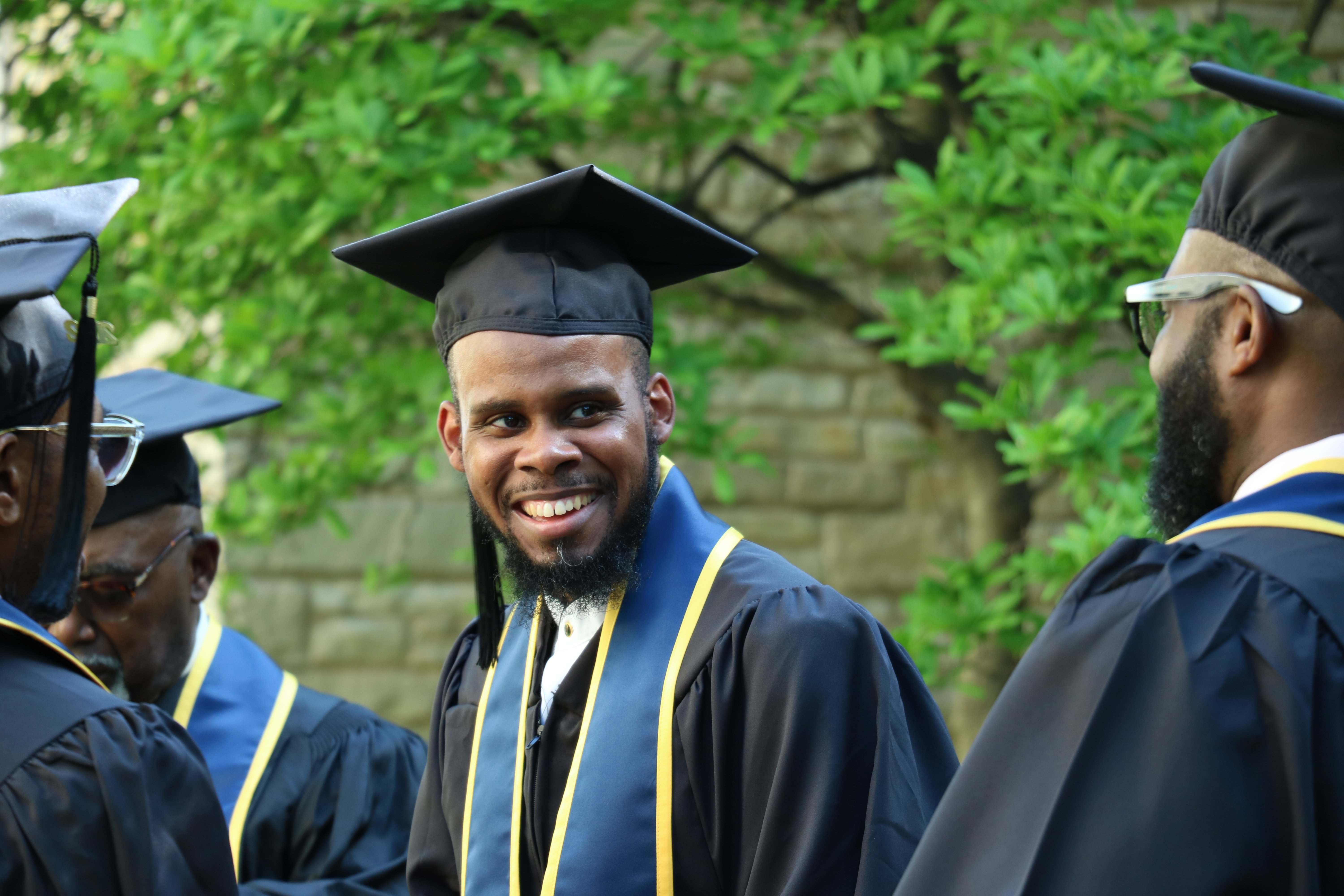Department of Organizational Leadership
- Home >
- Department of Organizational Leadership

Master of Arts (M.A.) in Organizational Leadership
This 48-unit graduate program trains professionals to lead faith-rooted organizations with excellence. Designed for aspiring nonprofit leaders, community organizers, and public servants, the program develops your capacity to lead ethically, sustainably, and Islamically.
You will:
- Ground your leadership in Islamic ethical frameworks
- Apply real-world leadership principles in nonprofit management, activism, and public service
- Learn from leading practitioners through immersive fieldwork
Pre-requisite: Bachelor’s degree (any field)
About the Curriculum
The curriculum offers a blend of theoretical knowledge and hands-on application. Students study foundational Islamic teachings on leadership—drawing from the Qur’an, the Prophet’s example (sīrah), and models of leadership in Islamic history—to establish an ethical framework for decision-making. In parallel, they engage with modern disciplines like strategic management, organizational behavior, project planning, and conflict resolution. Courses might cover topics such as nonprofit management, social entrepreneurship, public policy (from an Islamic perspective), and community development. Case studies and project-based assignments enable students to practice management skills in scenarios reflective of challenges faced by Muslim organizations and civic institutions. Throughout their studies, students are encouraged to engage in reflective practice, examining how Islamic moral and spiritual teachings can inform their leadership style and strategies.


Is this program for you?
Ideal candidates for the M.A. in Organizational Leadership are early to mid-career professionals who aspire to leadership positions in Muslim community centers, charities, interfaith organizations, educational nonprofits, or public sector agencies. Applicants should have at least a bachelor’s degree and some relevant experience (professional or substantial volunteer work) that demonstrates leadership potential and community engagement. The program welcomes students from diverse academic backgrounds and leverages their experiences in collaborative learning. Graduates will be equipped to take on roles such as program directors, nonprofit executives, community outreach managers, or policy advisors. They will emerge with a nuanced understanding of leadership that is both practically effective and deeply rooted in Islamic ethical principles, enabling them to drive positive change and uphold trust within the organizations and communities they serve.
Faculty leads
Dr. Rami Nashashibi
Founder, Inner City Muslim Action NetworkDr. Tayyab Yunus
National Development Director, CAIRDr. Shariq Siddiqui
Director, Muslim Philanthropy InitiativeIvana Zajkosvska
Director of Youth360Core Courses
Islamic Rational Theology
A rigorous introduction to classical Islamic theology, this course examines Muslim credal doctrines and the framework and tools used to ground those doctrines. Topics include God, prophecy, free will, and epistemology within the Ashʿarī and Māturīdī schools, and a historical survey of theological and philosophical approaches. Students will engage primary texts and develop tools to assess foundational positions.Islamic Law & Legal Theory
Introduces the sources, principles, and methodologies of classical Islamic jurisprudence and legal theory. Students explore Sunni legal schools, interpretive approaches, and the contemporary application of Sharīʿah, gaining familiarity with key concepts and legal terminology.Qur’anic Sciences
Provides an in-depth understanding of Qur’anic sciences (ʿUlūm al-Qur’ān) including revelation, compilation, variant readings, and tafsīr. Students engage critically with traditional and modern approaches to interpretation and textual analysis, building foundational knowledge and analytical tools.Islamic History
A comprehensive survey of Islamic civilization from the Prophet’s time to the modern era. Emphasizes political, cultural, and intellectual developments, including Umayyad and Abbasid history, Ottoman expansion, and the shaping of collective memory through historiography.Paradigms of Islamic Spirituality
Explores inner purification and moral refinement through the Qur’an, hadith, and classical/post-classical Sufi texts. Students examine early and later figures such as al-Bistami, al-Qushayri, al-Ghazali, Ibn Arabi, and Rumi, as well as the evolution of Sufi guilds and their impact on personal transformation and collective ethics.Program Requirements
CONNECT WITH US
Are you ready to enroll?
Join a dynamic community of changemakers at Bayan Islamic Graduate School. Whether you're pursuing leadership in chaplaincy, education, scholarship, or public service, Bayan offers flexible, accredited graduate programs grounded in Islamic tradition and designed for modern impact. With a hybrid model ideal for working professionals, enrolling at Bayan means taking the next step in your spiritual, academic, and professional journey.
